China’s Role in the Middle East Peace Process:
A Game Changer?
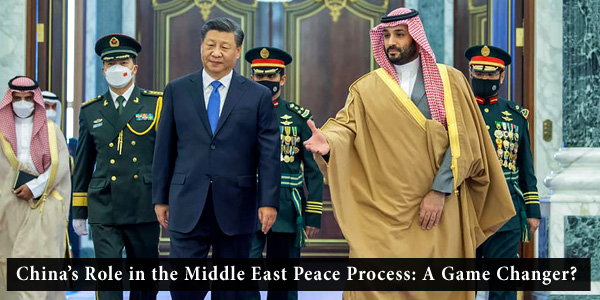
How China's Mediation Efforts Are Shaping the Future of the Middle East
With the raging war in Europe, conflicts in the Middle East, and the world’s focus on weapons development and military alliance building, China has taken a different approach to strengthening its reputation as the flagbearer of peace, stability, and economic cooperation. Whether it comes to providing a solution for the Russia-Ukraine war or mediating between the Middle Eastern rivals, China continues to advocate its zero-conflict policy, positioning itself as a meditator globally.
In March 2023, the world was taken by surprise when China brokered a deal between longtime Middle Eastern rivals, Iran and Saudi Arabia. The mediation is not just a significant diplomatic win for Beijing but also a breakthrough in its decades-long and persistent Middle East policy.
China-Saudi Arabia-Iran Talks
China’s top diplomat Wang Yi played a crucial role by hosting the meeting between the Secretary of Iran’s Supreme National Security Council Ali Shamkhani and Saudi Arabia’s National Security Advisor Musaad bin Mohammed al-Aiban in Beijing. The successful trilateral talks resulted in Riyadh and Tehran agreeing to reestablish their diplomatic relations by reopening their embassies within two months.
China’s efforts to increase influence in the Middle Easter have taken an important step forward recently. By the end of March 2023, Saudi Arabia’s cabinet approved a memorandum to join China-led Shanghai Cooperation Organization (SCO) as a dialogue partner. The decision brings Beijing and Riyadh a step close to building stronger ties. It is worth noting that Iran is already a permanent member of SCO.
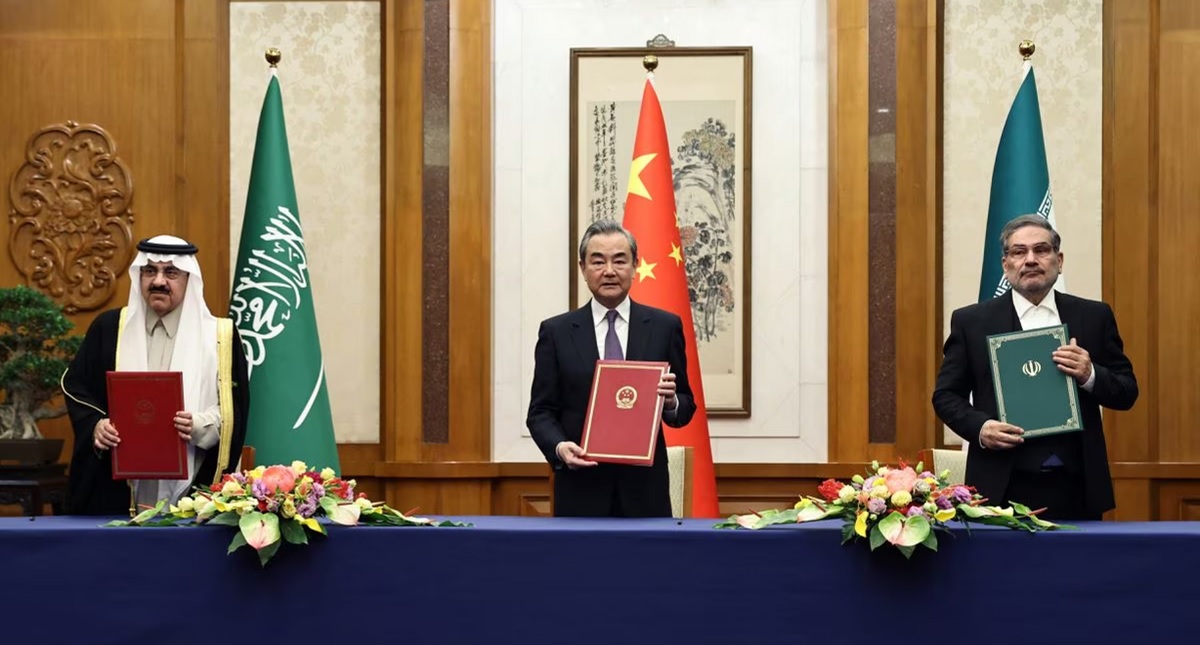 Member of the Political Bureau of the Communist Party of China (CPC) Central Committee and director of the Office of the Central Foreign Affairs Commission, Wang Yi (C), attended a meeting with Minister of State and national security adviser of Saudi Arabia Musaad bin Mohammed Al Aiban (L) and Secretary of Iran’s Supreme National Security Council, Ali Shamkhani, in Beijing, China on March 10, 2023. (Image Credit: China Daily/via Reuters)
Member of the Political Bureau of the Communist Party of China (CPC) Central Committee and director of the Office of the Central Foreign Affairs Commission, Wang Yi (C), attended a meeting with Minister of State and national security adviser of Saudi Arabia Musaad bin Mohammed Al Aiban (L) and Secretary of Iran’s Supreme National Security Council, Ali Shamkhani, in Beijing, China on March 10, 2023. (Image Credit: China Daily/via Reuters)
In a further development to showcase its tilt towards China’s narrative of promoting peace and stability in the Middle Eastern region, the Saudi-led military coalition lifted import restrictions on Yemen that had been in place for more than eight years. This move would increase the flow of goods through Yemeni ports, signaling a possible peace between Saudi Arabia and Iran-backed Houthi rebels.
The armed conflict between the Saudi-backed government and Iran-backed Houthi rebels has long been seen as a proxy war between the two regional rivals. However, with China’s mediation bringing Iran and Saudi Arabia closer together, the possibility of a sustainable diplomatic solution to the Yemen crisis is now within reach. The signs of a breakthrough in the Yemen crisis emerged on April 10 when the Saudi-Omani delegation traveled to Yemen’s capital Sanaa to hash out a permanent ceasefire deal with Houthi officials and end the country’s eight-year conflict.
The Houthi news agency SABA reported that a Saudi envoy held a meeting with the head of the Houthi Supreme Political Council Mahdi al-Mashat and discussed ways for ending hostilities and permanently lifting a Saudi-led blockade on Yemeni ports. It is expected that Yemen’s warring parties could announce an agreement by the end of April 2023 to finally restore sustainable peace in the country.
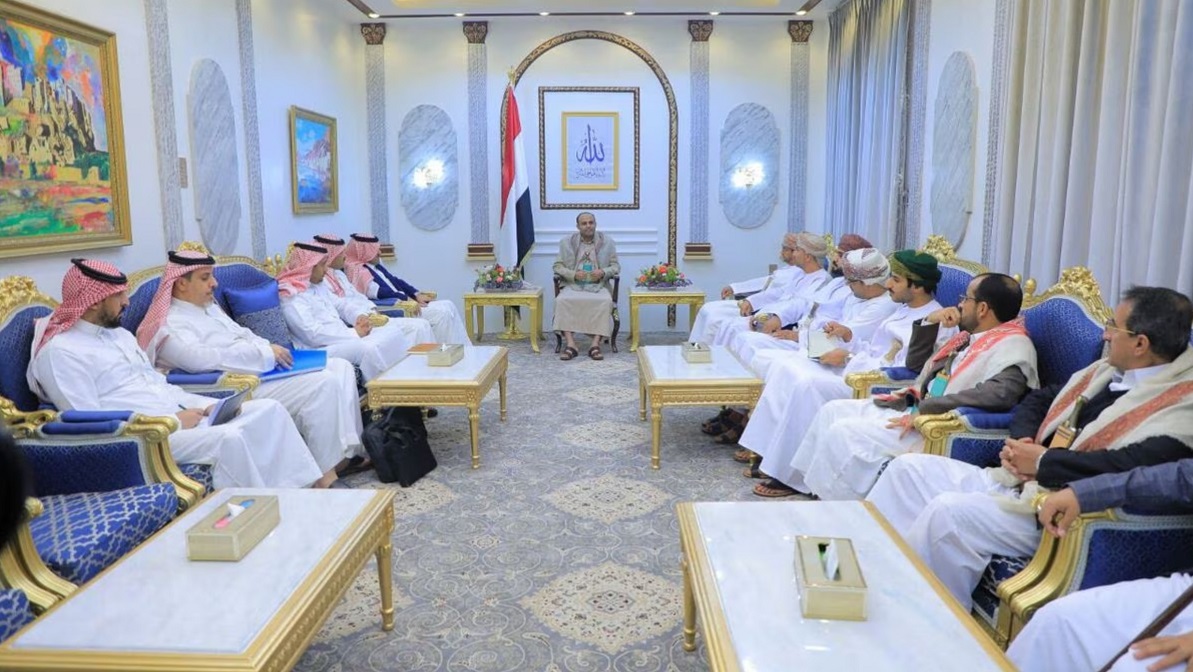 The head of the Houthi Supreme Political Council, Mahdi al-Mashat, meets with Saudi and Omani delegations at the Republican Palace in Sanaa, Yemen, on April 9, 2023. (Image Credit: Saba News Agency/via Reuters)
The head of the Houthi Supreme Political Council, Mahdi al-Mashat, meets with Saudi and Omani delegations at the Republican Palace in Sanaa, Yemen, on April 9, 2023. (Image Credit: Saba News Agency/via Reuters)
Economic Implications of China’s Role in the Middle East
Being the world’s largest oil importer, China’s interest in the Middle East is primarily focused on securing access to energy resources. In recent years, state-owned companies such as China National Petroleum Corporation (CNPC) and Sinopec Group have heavily invested in the region’s oil and gas industry, acquiring stakes in oil fields across the Middle East.
These investments have secured China’s energy supply and strengthened its economic and political influence in the region. With its growing economic clout, China has been able to use its financial power to fund infrastructure projects and establish trade agreements with Middle Eastern nations.
In addition to its economic presence, China has also been actively pursuing diplomatic efforts in the region. In 2016, China hosted a summit with Arab leaders, announcing plans to create a $20 billion fund to finance economic development in the Middle East. China has also been a vocal supporter of the Iran nuclear deal, which it sees to ease tensions in the region and promote economic cooperation.
The recent diplomatic breakthrough between Iran and Saudi Arabia presents a unique opportunity for China to help stabilize global oil markets and prices while increasing its energy exports from both Russia and the Middle East.
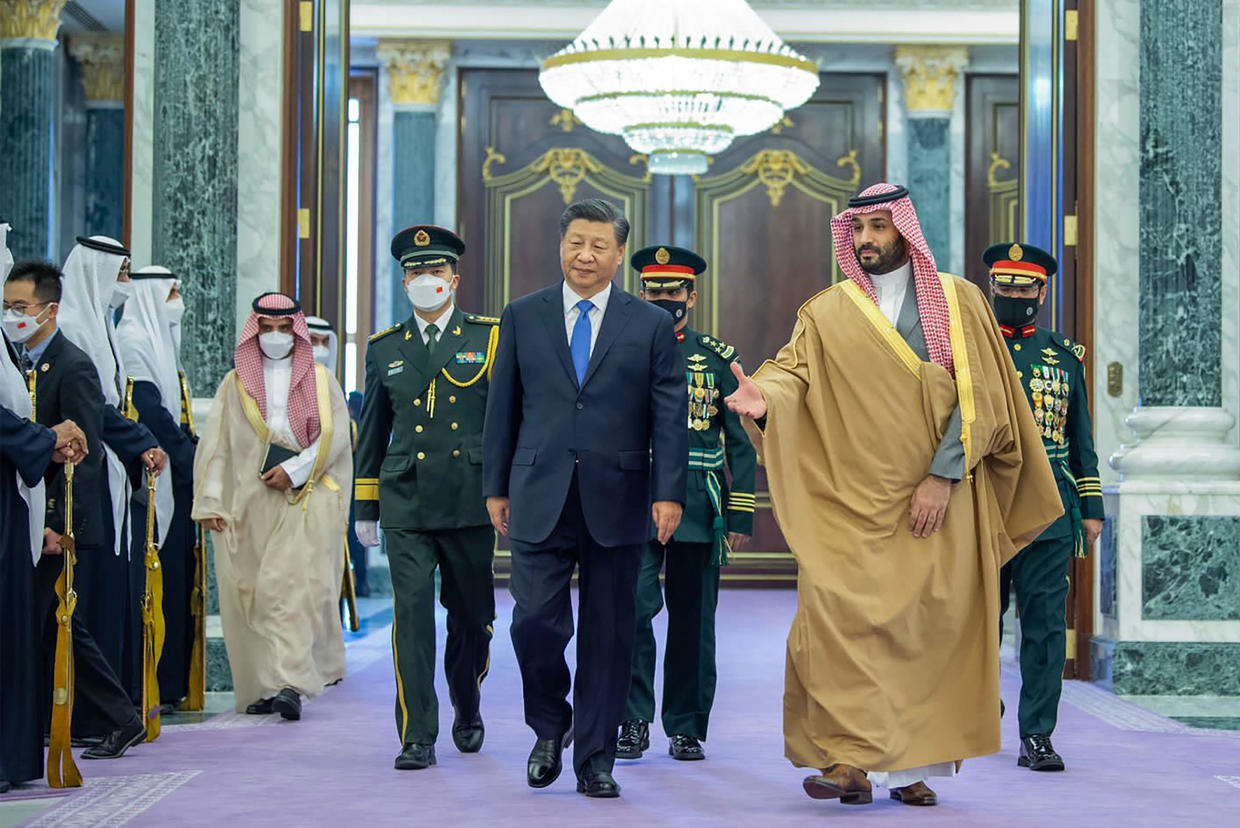 Chinese President Xi Jinping, left, greeted by Saudi Crown Prince and Prime Minister Mohammed bin Salman after his arrival at Al Yamama Palace, in Riyadh, Saudi Arabia, on December 8, 2022. (Image Credit: Saudi Press Agency/AP)
Chinese President Xi Jinping, left, greeted by Saudi Crown Prince and Prime Minister Mohammed bin Salman after his arrival at Al Yamama Palace, in Riyadh, Saudi Arabia, on December 8, 2022. (Image Credit: Saudi Press Agency/AP)
U.S. reaction to China’s increasing ties in the Middle East
China’s increasing presence and influence in the Middle East has raised concerns among some Western observers, particularly in the United States. Some have argued that China’s economic and political influence in the region could undermine the United States’ traditional role as a key player in the Middle East.
Although U.S. officials have appeared to downplay any impact of growing Saudi-China ties on its regional policies, the White House spokesperson has acknowledged that “The Saudis did keep us informed about these talks that they were having, just as we keep them informed on our engagements.”
The growing relationship between China and Saudi Arabia has also prompted calls for U.S. intervention. However, some reports suggested that CIA Director Bill Burns made an undisclosed trip to Saudi Arabia after China brokered a deal between Riyadh and Tehran.
The CIA director's trip was reportedly focused on discussing intelligence cooperation with the Saudi Arabian counterpart. During his meeting, he also reportedly expressed Washington’s frustration at being left out of regional developments, particularly those related to the Iran-Saudi Arabia negotiations. The developments highlight the changing power dynamics in the Middle East, with China emerging as a major player alongside traditional powers such as the United States.
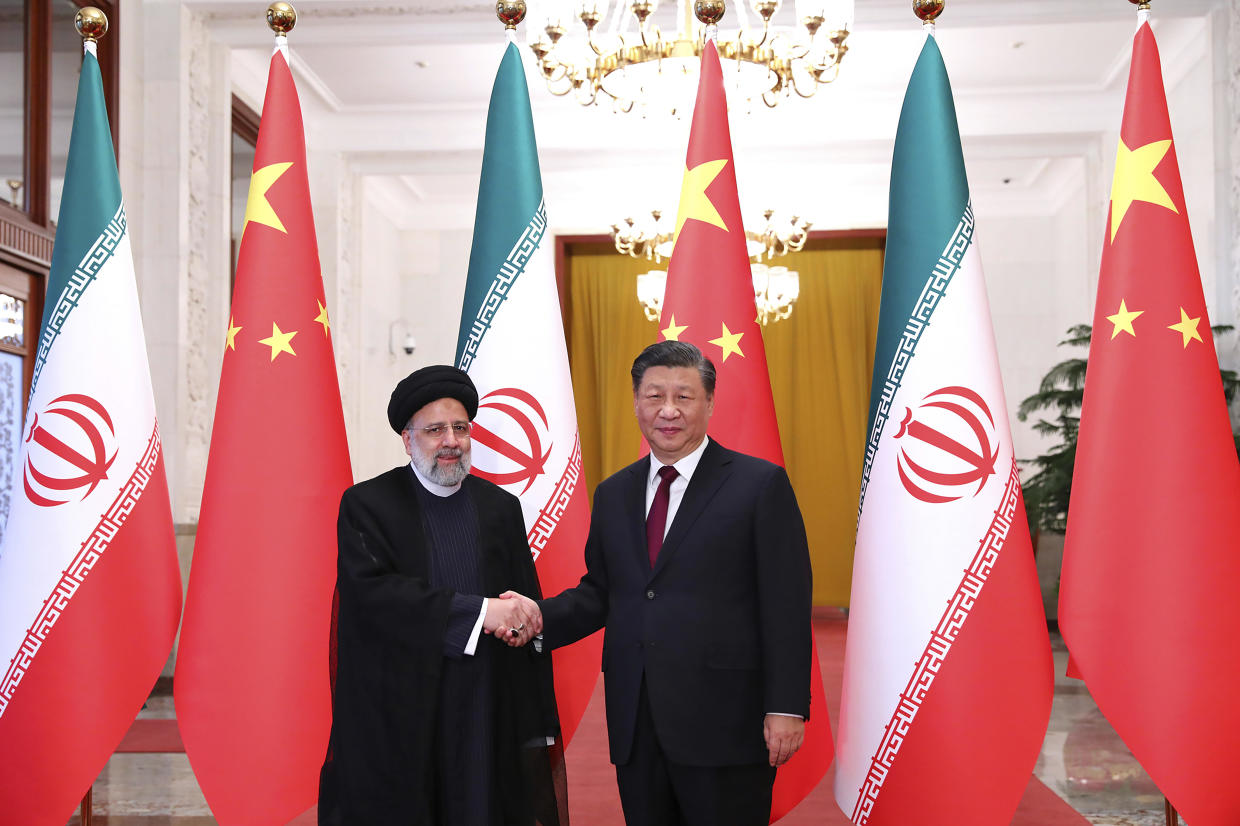 President Ebrahim Raisi (Left) shakes hands with Chinese President Xi Jinping in an official welcoming ceremony in Beijing, on February 14, 2023. (Image Credit: Iranian Presidency Office/AP)
President Ebrahim Raisi (Left) shakes hands with Chinese President Xi Jinping in an official welcoming ceremony in Beijing, on February 14, 2023. (Image Credit: Iranian Presidency Office/AP)
As China’s presence in the Middle East grows, it has become increasingly difficult for the U.S. to assert itself as a major player in the region. However, some analysts have attempted to portray the Iran-Saudi Arabia deal as a victory for the U.S., stating that the only possible way to facilitate negotiations between the two rivals — Iran and Saudi Arabia — was to allow a third party to mediate, given Tehran’s confrontational approach towards Washington.
With Unites States’ priorities focused on the Russia-Ukraine war and the Indo-Pacific region, China can gain significantly in the Middle East, both economically and geopolitically. However, ultimately, it comes down to the regional leaders and their geopolitical wisdom to balance their economic and foreign policies to maintain stable diplomatic relations with both China and the U.S. while pursuing their own interests.
Regions
Issues

























